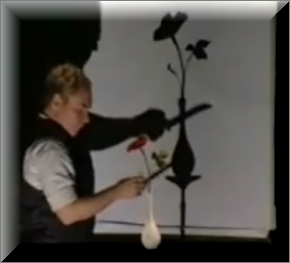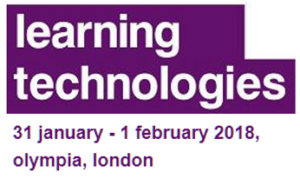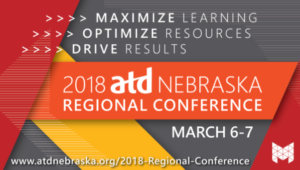This week’s #lrnchat explored similarities between Magic and Learning, and featured a special guest: Mike Hruska. The contributions Mike added to the discussion and the resources he and others shared to continue the learning are curated at the bottom of this post.
I always find looking at the questions that are used to loosely guide the chat as a nice way to see the overall theme of the chat. Here are the discussion questions that were presented to the group:
Q1) What is your definition of magic?
Q2) How does magic make you feel?
Q2a) Magic manages ATTENTION and AWARENESS really well. How do we do this in learning?
Q3) How are learning and magic related?
Q3a) What ‘tricks’ does the brain play when learning?
Q4) How could magic inform what we know about teaching/learning?
Magic is an interesting topic to explore during a chat about learning. At the surface, magic and learning seem unrelated. However, there are more similarities than may be obvious at first glance.
What is Magic?
When defining magic, there are two distinct paths that can be taken: Defining Magic as an act or as a feeling. For example, when I see a magician on stage performing a trick, that’s Magic. I could also describe the moment when my son and daughter first met Mickey Mouse as a moment when ‘magic’ took place for them.
Both definitions are valid, and in reality the definitions, while different, exist in shared space. In the context of this lrnchat discussion, when we compare Magic with Learning, I look at the what the magician does to create that feeling of magic – not on the feeling of magic itself.
So with that context, for me magic is defined by the journey I take from a place where logic dictates something as impossible to a new place where the impossible, however unlikely, appears to be possible.
While the trick itself interests me, what really fascinates me from a learning perspective is the role the magician plays in shaping the journey and my experience.
How Does Magic Make You Feel?
 Journey is also a good word to explain how magic makes me feel. The journey starts with a childlike wonderment as I watch a trick being performed. From there the feeling of wonderment gives way to a burning curiosity that is yearning to understand how the trick was completed. In the end, I’m left with a combination of the two. I’m still holding on to the wonderment of witnessing the trick, balanced by the logical curiosity of trying to discover how it was done.
Journey is also a good word to explain how magic makes me feel. The journey starts with a childlike wonderment as I watch a trick being performed. From there the feeling of wonderment gives way to a burning curiosity that is yearning to understand how the trick was completed. In the end, I’m left with a combination of the two. I’m still holding on to the wonderment of witnessing the trick, balanced by the logical curiosity of trying to discover how it was done.
How are learning and magic related?
This is another question that can go in different directions. I looked at this question from the shared perspective of building an experience, something that exists in both magic and organizational learning.
Magicians are masters at controlling the attention of their audience. I think many trainers and designers would say they do this as well, but magicians take it to another level learning professionals can earn from.
Magicians don’t just control attention; they control the focus of your attention. Misdirection is a huge part of magic, allowing you to get so involved in the story and where the magician is placing focus that you do not notice the mechanics of the trick being performed.
This is something we often struggle with in the learning field. Too often the mechanics of what is needed to put participate in a learning experience take up a huge amount of the learners attention.
In truth, most of the learning experiences that are built at an organization barely qualify as experiences at all. The course model that we traditionally follow is built on a foundation of delivery efficiency instead of creating an experience. Magicians create an experience and a journey around their tricks, which is part of the reason there shows are so captivating.
Another parallel between learning and magic are the roles being played by those involved. Instructional designers do not create learning. Instructional designers create courses, environments, and/or experiences with the intention of forging something that individuals can learn from. In reality though, the learning doesn’t take place within the experience; the learning takes place within the individual learner. While I might be able to train or teach an individual how to do something, I cannot ‘learn’ them. Learning is a personal and internal task. All I can do as an instructional designer is try to build an experience in which participants have the inputs and tools needed to support their individual learning.
This is very similar to what magicians do. A magician doesn’t really create magic. Magic does not take place on the stage; like learning, magic takes place in in the mind of the individual audience member. What the magician does is create an experience through controlled attention and awareness that enables magic to take place within an audience’s mind.
One of the best examples I can think of that demonstrated this was an experience I had while attending a conference in Las Vegas. A few friends and I decided to spend an evening attending the Penn & Teller show.
During the show, Koreen Olbrish was selected to come up on stage and participate in a trick. She was blindfolded and Penn & Teller conducted a trick around her. For those in the audience watching, there really was no magic taking place. We were able to see what they were doing to control Koreen’s perspective. However, it was an excellent example of how magician’s control focus and attention when building an experience.
Here’s a video of Penn & Teller Performing the trick at Comic Con a few years ago.
So What Can Magic Inform Us About Learning?
What kinds of lessons from the world of magic can be applied to what we do in the world of learning?
I would start with encouraging curiosity. Part of the reason magic works is that there is an inherent curiosity to it. Your expecting a trick. Perhaps you’re trying to figure out the ‘how’ as you watch. Curiosity fuels attention and engagement. If we can create curiosity in our learners, there’s a better opportunity for them to be engaged in their own learning.
Magicians are experts on misdirection. They intentionally focus attention in one area so that you do not see the mechanics behind the trick taking place. You could argue that magicians focus attention on something unimportant so you don’t notice something actually important. We do this often in learning. The problem is, it’s almost never intentional.
In our content-driven culture, we tend to start from a place that looks at how much content can ‘fit’ into a learning experience. We pack in what we can, which is often more than we should. In reality, there are probably only a select few things that you need workers to do as a result of the learning experience. How much of our content misdirects learner attention from what it is they actually need to be doing as part of their work?
Magicians also spend time understanding how the human mind works. They look at how we take in information via our senses, and they understand how the brain interprets those signals. It’s how they are able to manipulate our senses and create magic. I’m not saying we need to manipulate learners in the same way, but better understanding how our brains interpret and process information is needed in our field.
Want to Learn More?
There’s a great deal that those working in the learning profession can learn from magicians. Here are some additional resources that Mike Hruska and others shared during the chat that we can utilize to continue learning about this topic.
Apollo Robbins
Meet the gentleman thief! Theatrical pickpocket Apollo Robbins shows off his ‘supernatural’ slight-of-hand skills by picking clean trio of TV hosts By Snejana Farberov
A Pickpocket’s Tale by Adam Green
The Secrets of a Master Pickpocket by Aisha Harris
Marco Tempest
Marco Tempest: The magic of truth and lies (and iPods) TED Talk
Marco Tempest: A cyber-magic card trick like no other TED Talk
Marco Tempest: The electric rise and fall of Nikola Tesla TED Talk
Darren Brown
Derren Brown – “Paying with Paper” YouTube Video
The Power Of Covert Hypnosis With Derren Brown YouTube Video
Other Resources
The Magic of Attention and Focus by Koreen Olbrish
Marketing Metaphoria: What Deep Metaphors Reveal About the Minds of Consumers book by Gerald Zaltman and Lindsay Zaltman
Tricks with Your Head: Hilarious Magic Tricks and Stunts to Disgust and Delight book by Mac King and Mark Levy
Mind Hacks: Tips & Tools for Using Your Brain book by Tom Stafford and Matt Webb
Clarke’s three laws Wikipedia Page
Influence: The Psychology of Persuasion book by Robert B. Cialdini
The Thiagi Group Training Intelligence Podcast: Magic
Having Mike participate in the chat was great. I’ve isolated his contributions to the chat via this Storify.








